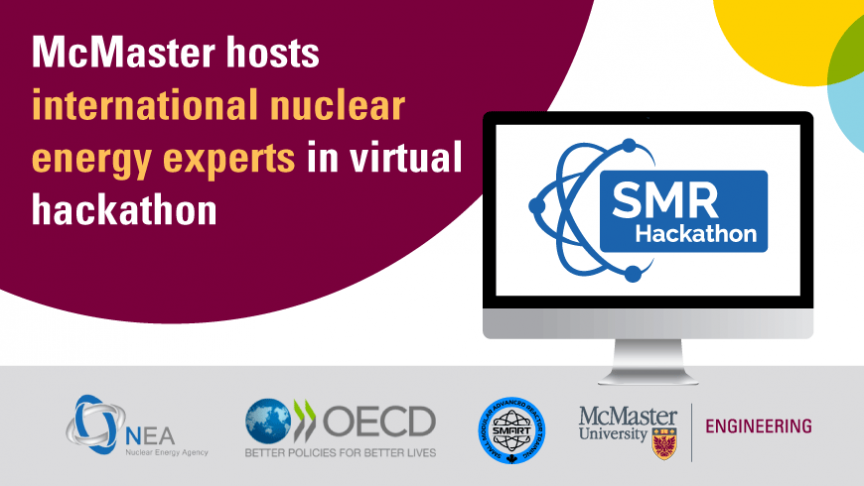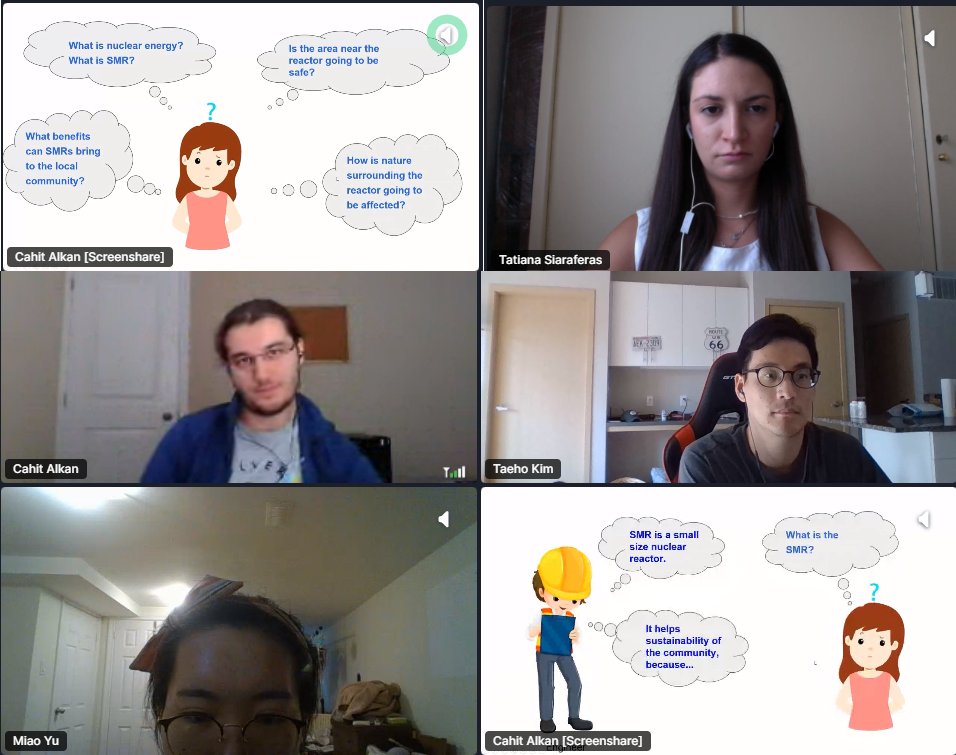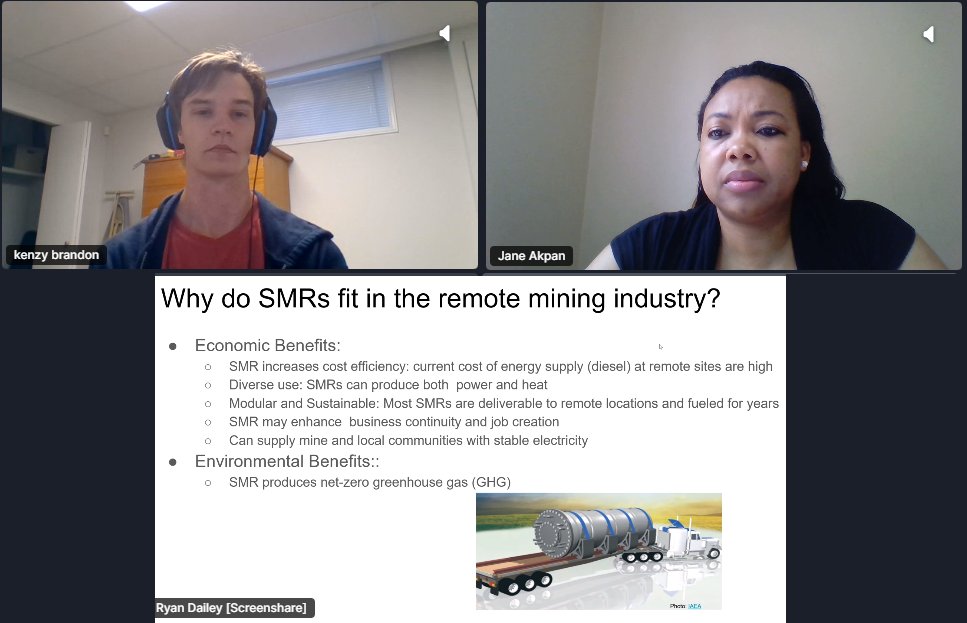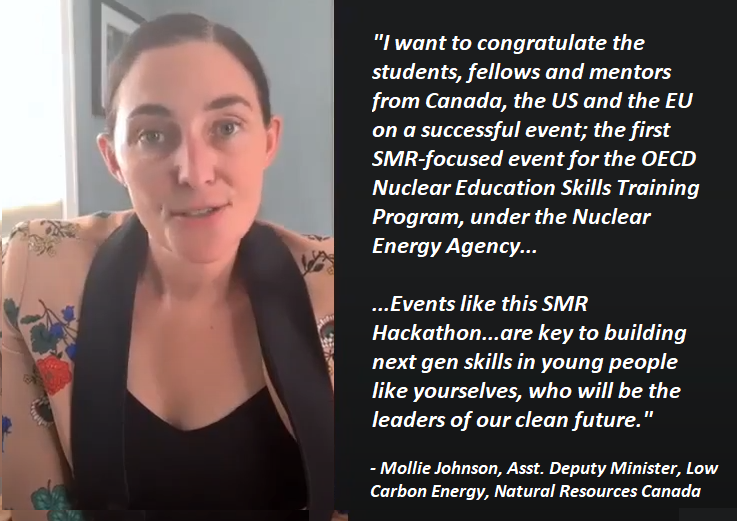McMaster hosts international nuclear energy experts in virtual hackathon

September 4, 2020
More than 70 nuclear experts, students and government representatives from Canada, the U.S. and the European Union gathered virtually for the Small Modular Reactors (SMR) Hackathon to share their expertise on nuclear energy solutions.
In the first event of its kind, the Faculty of Engineering hosted more than 70 nuclear experts, students, industry and government partners from around the world in a virtual hackathon to broaden the discussion of nuclear energy solutions.
Focusing on small modular reactors (SMRs) and training the next generation of nuclear experts, the SMR Hackathon took place from August 17 to 21, bringing together participants from across Canada, the U.S. and the European Union.
“The Hackathon was a great way for early career professionals to start collaborating across borders to understand and solve the technology and social challenges to deployment of advanced energy systems,” said Todd Allen, a professor of nuclear engineering and radiological science at the University of Michigan and co-host of the event.
“Clean energy is needed internationally to reduce inequality, and nuclear energy will be a component of clean energy of the future.”
Through case studies and presentations, the cross-disciplinary event gave students the opportunity to examine nuclear energy and deployment of SMRs through various lenses – from traditional science and engineering, to considering the social, economic and political impacts.


A key component of the event centered on how to foster social acceptability and navigate licensing and regulatory frameworks to position SMRs as a viable clean energy alternative.
“It was exciting to be a part of the SMR Hackathon in 2020 and see how well the participants responded to the goal of breaking down barriers between the sciences and social sciences,” said Dave Novog, a professor of engineering physics and primary investigator of the SMART-CREATE Program at McMaster University. He was also the event’s co-host.
William Magwood IV, the OECD-NEA’s Director General, stressed the importance of nuclear technology as a key non-emitting renewable solution to help meet global energy targets.
“[SMRs] present an agenda of exciting new innovation that’s really different from what we’ve seen in the past,” said Magwood in his remarks to students. “This is the first step in a long journey. I think all of you will emerge from this hackathon better equipped and hopefully energized to take on this challenge and I look forward to being side by side with you as [SMRs] move forward.”
Mollie Johnson, Assistant Deputy Minister, Low Carbon Energy Sector, Natural Resources Canada, spoke about Canada’s SMR Action Plan, which is set to launch in Fall 2020. The plan will detail ongoing collaborations between Canadian partners in realizing the future of SMRs and Canada as a global leader in this area.
“Taking advantage of the SMR opportunity will require a multi-disciplinary group – Canadian governments, Indigenous groups, industry, utilities, civil society and academia all playing important roles together,” said Johnson.
“This includes the important role that McMaster, our hosts for this week, plays in nuclear science and technology and we are excited for McMaster to join us in this action plan.”
The SMR Hackathon was jointly organized by the Organization for Economic Development (OECD)’s Nuclear Energy Agency’s Education, Skills and Technology (NEST) Framework and the NSERC SMART-CREATE program.
The NEST SMR program is a Nuclear Energy Agency program involving the EU, U.S. and Canada and is dedicated to the training and development of people for the upcoming SMR deployment phase.
The SMART program, funded by the Natural Sciences and Engineering Research Council’s CREATE Program and led by Dave Novog, seeks to train more well-rounded and entrepreneurially focused graduate students who can succeed in the competitive world of small SMR vendors. It involves six universities and 10 principal investigators and aims to train students to succeed in the new nuclear environment where many small companies co-exist instead of the historical model of one or two major industry players.
See highlights from the week on the SMR Hackathon Twitter Account



